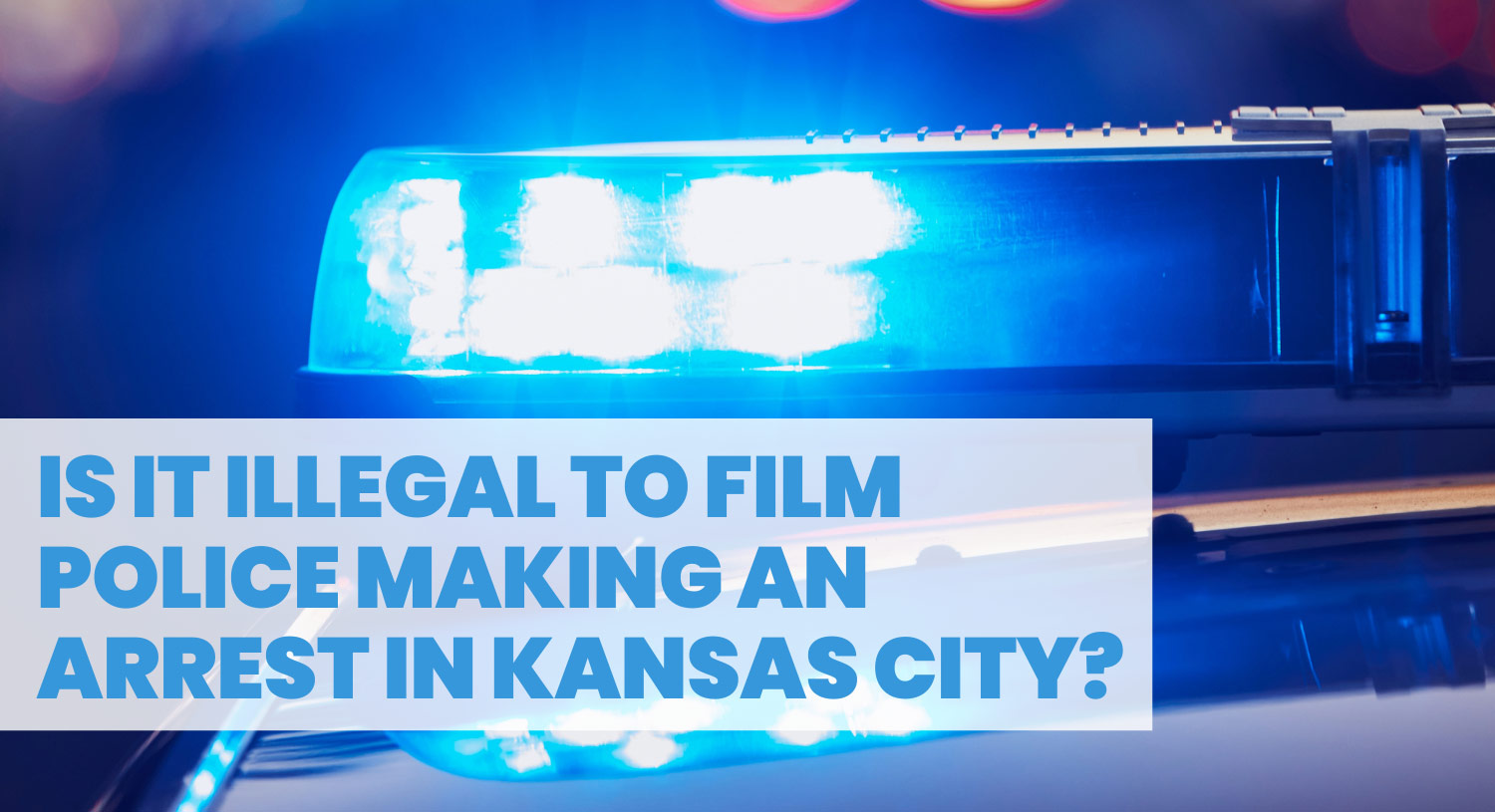The legality of filming police during an arrest has gained attention due to the widespread use of cell phones. In summary, it is legal to film police making an arrest in Kansas City (whether in Missouri or Kansas), as long as you are in a public space and do not interfere with the officers’ actions. However, there are important limitations and distinctions to understand.
This article is for informational purposes only and does not serve as legal advice.
Legal Protections & Laws
First Amendment Rights
Under US law, citizens generally have the right to record public officials—including police—while they are performing their public duties in public places. This is protected under the Free Speech / Free Press clauses of the First Amendment.
Obstruction or Interference
While your right to record is well supported, it does not permit you to interfere with police operations. If your filming obstructs an arrest or blocks access, it could be considered unlawful. It is essential to stay a reasonable distance away, and if an officer orders you to move, you must comply. Finally, record openly, not surreptitiously. Covert recording can trigger wiretap statutes or other legal complications.
Where the Law Remains Uncertain
• The U.S. Supreme Court has yet to issue a definitive ruling on the First Amendment right to record police.
• Some circuits or lower courts have found that, although there is a right to record, the specific facts did not “clearly establish” the right at that time, resulting in qualified immunity for officers.
• State laws vary. Some states may have stricter wiretap or eavesdropping laws that clash or complicate how audio-only recording is treated.
• Legislative changes are ongoing, and some states or localities have tried to pass laws limiting how close one can come to police or restricting filming near crime scenes.
Because of these uncertainties, while the general principle is strong, outcomes in specific cases may differ based on jurisdiction, time, and facts.
Conclusion
Under the First Amendment, you generally have the right to record police officers performing their official duties in public spaces. Courts have recognized this right in multiple circuits, and it is increasingly seen as “clearly established” in many areas. However, your rights are not unlimited. You cannot interfere with law enforcement, trespass, or blatantly ignore safety or privacy rules. If you have questions about your rights or need legal advice regarding a specific incident, contact the Law Offices of Reginald Keith Davis for a confidential consultation. Contact us now at kcklawyer.com. Phone: (913) 299-8789

